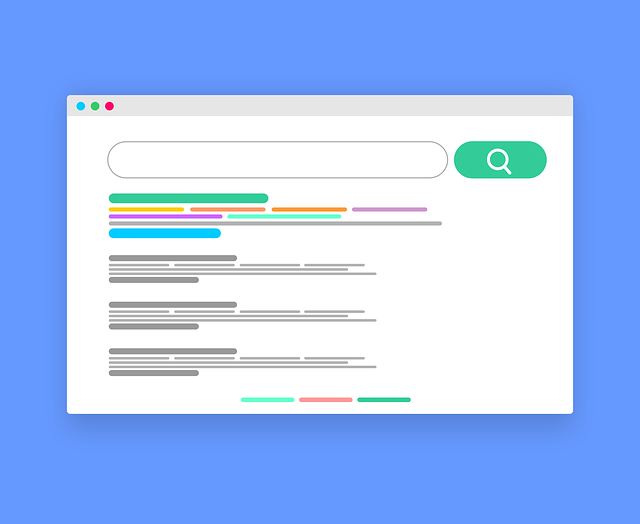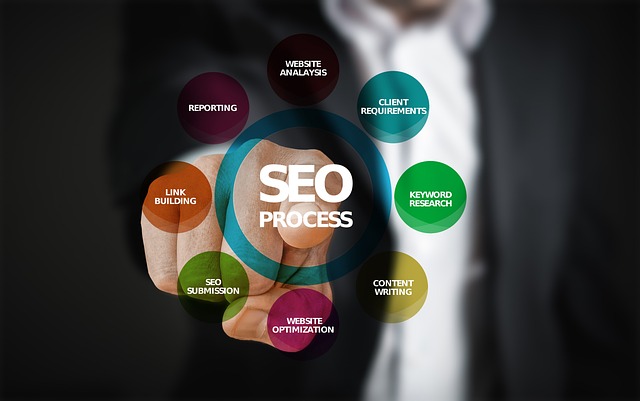In today's digital era, SEO Agency Conferences are crucial for agencies managing multiple clients. Multi-client SEO platforms streamline keyword research, content optimization, backlink analysis, and performance tracking, saving time and resources while enhancing agency reputation. These tools enable efficient workflows, comprehensive reporting, and seamless collaboration during conferences. Implementing these strategies, as demonstrated by a mid-sized agency case study, leads to substantial improvements in communication, content quality, and campaign performance. The future of multi-client SEO focuses on AI, personalized content, voice search optimization, and data-driven decision-making, promising enhanced user experiences and market competitiveness.
“Welcome to the definitive guide on multi-client SEO tools, designed to empower marketing professionals navigating today’s digital landscape. As the demand for comprehensive online visibility grows, understanding and leveraging multi-client platforms becomes paramount for SEO agencies.
This forum delves into the intricacies of these tools, from their role in shaping industry trends at SEO Agency Conferences to the strategic management of multiple clients’ online presences. We explore key features, benefits, and real-world case studies, offering valuable insights for continuous improvement.”
Understanding Multi-Client SEO Tools: A Comprehensive Overview

In today’s digital era, SEO has become a cornerstone for businesses aiming to thrive online. Multi-client SEO tools play a pivotal role in this landscape, offering efficient solutions for managing multiple websites and clients within a single platform. These tools are particularly invaluable for SEO agencies participating in SEO Agency Conferences, where staying ahead of the curve is crucial. They streamline processes such as keyword research, content optimization, backlink analysis, and performance tracking, enabling agencies to provide data-driven strategies tailored to each client’s unique needs.
By consolidating these tasks, multi-client SEO tools save time and resources significantly. Additionally, they facilitate better client communication by providing clear, accessible dashboards that showcase progress and insights. This not only enhances the agency’s reputation but also fosters stronger relationships with clients, ensuring their continued success in a rapidly evolving digital marketplace.
The Role of SEO Agency Conferences in Shaping Industry Trends

SEO Agency Conferences play a pivotal role in shaping the digital marketing industry by bringing together experts, thought leaders, and professionals from around the globe. These events serve as a hub for knowledge sharing, offering insights into the latest SEO trends, tools, and strategies. By attending such conferences, businesses and individuals gain access to cutting-edge information, enabling them to stay ahead of the curve in a rapidly evolving digital landscape.
Moreover, these gatherings facilitate networking opportunities, fostering collaboration and innovation. Participants can connect with peers, exchange ideas, and explore potential partnerships. The discussions and presentations at SEO Agency Conferences often reflect the current industry dynamics, addressing challenges and highlighting successful case studies. This collective knowledge contributes to the advancement of best practices, ultimately driving the development of more effective SEO strategies and enhancing the overall health of the digital marketing ecosystem.
Key Features and Benefits of Top-Tier Multi-Client SEO Platforms

Top-tier multi-client SEO platforms are transforming the way digital marketing teams operate, especially for agencies participating in SEO Agency Conferences. These platforms offer a suite of features designed to streamline workflow, enhance efficiency, and boost client performance. Key among these is comprehensive reporting, allowing marketers to track key metrics across multiple clients from a single dashboard—a significant time-saver during busy conference schedules where every minute counts.
Additionally, these platforms facilitate collaborative work by enabling seamless sharing of project updates, strategy documents, and client communications. This feature is particularly valuable for agencies presenting their methodologies or discussing case studies at conferences, ensuring everyone stays on the same page. Moreover, automation capabilities like automated content generation and keyword research tools empower SEO specialists to deliver high-quality campaigns promptly, leaving more time to network and strategize during industry events.
Strategies for Effective Multi-Client Management within SEO Agencies

In the dynamic landscape of digital marketing, SEO agencies often juggle multiple client accounts simultaneously, requiring sophisticated strategies for effective multi-client management. A key approach is to establish a robust internal communication system that facilitates seamless information sharing and collaboration among teams handling diverse clients’ needs. This includes regular meetings, centralized project management tools, and clearly defined roles and responsibilities.
At an SEO Agency Conference, professionals can gain valuable insights into best practices for managing multiple clients. By adopting data-driven decision-making processes, agencies can optimize campaign performance across the board. Personalized strategies tailored to each client’s unique goals and challenges, combined with regular performance reporting and transparent communication, build trust and foster long-term partnerships.
Case Studies: Successful Implementations of Multi-Client SEO Tools

In the fast-paced digital landscape, SEO strategies are continually evolving, and staying ahead means leveraging the right tools. Multi-client SEO tools have emerged as powerful assets for agencies, enabling them to manage multiple client campaigns efficiently. Case studies from leading SEO Agency Conferences highlight the success of these tools in streamlining workflow, improving communication, and enhancing overall campaign performance.
For instance, one notable case study features a mid-sized digital marketing agency that implemented a multi-client SEO platform to service a diverse portfolio of clients across various industries. The tool allowed them to centralize keyword research, content optimization, and link building efforts, resulting in improved rankings and increased client satisfaction. This success story underscores the significant advantages of these tools, including time savings, better data visibility, and consistent strategy execution across multiple clients.
Challenges and Common Pitfalls to Avoid During Multi-Client Optimization

Optimizing for multiple clients simultaneously can pose unique challenges for any SEO agency. One of the primary pitfalls to avoid is the risk of content overlap and duplication, which can lead to penalties from search engines. With limited resources and time, it’s crucial for agencies to establish clear strategies to ensure each client’s content is distinct, high-quality, and tailored to their specific target audience.
Another common challenge is maintaining a cohesive brand image while catering to diverse client needs. SEO Agency Conferences often highlight the importance of adaptable yet consistent content strategies. Agencies must be adept at personalizing their approach without compromising the overall brand voice and messaging. This requires strong communication with clients, in-depth keyword research, and a deep understanding of each client’s unique position in the market.
Integrating Advanced Analytics into Your Multi-Client SEO Strategy

In today’s competitive digital landscape, a successful SEO Agency Conference isn’t just about implementing standard strategies—it revolves around leveraging advanced analytics to gain a significant edge. Integrating sophisticated analytical tools into your multi-client SEO strategy allows for data-driven decisions that precisely target each client’s unique needs. These insights enable you to identify high-value keywords, track performance metrics in real-time, and understand user behavior on a granular level—all vital components for optimizing search rankings.
By delving into advanced analytics, your agency can uncover hidden patterns and trends, enabling more effective content creation and link-building strategies. This not only enhances client visibility but also ensures that SEO efforts are tailored to specific audiences. Ultimately, embracing these analytical advancements positions your agency as a forward-thinking leader in the field, delivering measurable results that surpass industry benchmarks.
The Future of Multi-Client SEO: Emerging Technologies and Innovations

The future of multi-client SEO is brimming with potential, driven by emerging technologies and innovations that are transforming the digital landscape. With the ever-evolving online environment, SEO strategies must adapt to stay relevant. One notable trend is the increasing adoption of artificial intelligence (AI) and machine learning algorithms. These tools can analyze vast data sets, predict user behavior, and optimize content at scale, enabling SEO agencies to deliver more effective campaigns.
At upcoming SEO Agency Conferences, we’re likely to see discussions centered around smart automation, personalized content creation, and voice search optimization. As technology advances, the line between human and machine efforts will blur, leading to more efficient and data-driven SEO practices. This evolution promises to empower marketers with sophisticated insights, enhance user experiences, and ultimately boost online visibility for businesses operating in a highly competitive digital arena.
Best Practices for Continuous Improvement in Multi-Client SEO Performance

At a SEO Agency Conference, professionals often gather to exchange insights on staying ahead in the dynamic world of search engine optimization. Continuous improvement is key to maintaining competitive edge. Best practices include regular site audits to identify and rectify technical issues that hinder performance across all client sites. Staying up-to-date with algorithm changes is vital; tools and resources should be utilized to monitor these shifts, enabling quick adjustments to content strategies.
Collaboration among team members is another essential practice. Sharing knowledge and best practices facilitates a holistic understanding of client needs. This collaborative approach allows for the development of innovative solutions tailored to each client’s unique challenges. Moreover, setting measurable goals and tracking progress ensures that improvements are tangible and impactful, fostering a culture of continuous learning and optimization.
